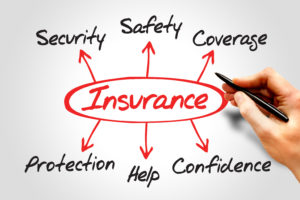Replacement Cost v. Actual Cash Value – February 2020
What is the difference between Replacement Cost and Actual Cash Value?
When you first purchase homeowner’s insurance and/or any other type of property insurance, you may have to make a choice between replacement cost option or actual cash value option. When it comes to understanding your homeowner’s/property insurance coverage it can be confusing. The reason it’s confusing is a customer really doesn’t understand the difference between replacement cost and actual cash value.
Most people think their coverage limits on their Declaration Page of their insurance policy is a good indicator as to how much they will be paid at the time of a claim. This isn’t the reality. The coverage limits on the declaration page is the maximum you could possibly be paid, not necessarily how much money you will receive.
What you should know so you understand how much you will get paid during a claim, and the difference between replacement cost and actual cash value coverage.
What is Replacement Cost?
Replacement cost is what it sounds like. It’s the cost of replacing something you own with a brand-new-version for e.g., your TV gets destroyed due to a fire, it’s the cost of buying a comparable model at the store or your couch burns to a crisp due to a house fire, it’s the cost of buying a comparable couch at the furniture store. It is easy to estimate replacement cost. You can look up the same brand and model online and see what it’s selling for at your favorite store.
Figuring out the replacement cost of your home and other buildings can be a little trickier. In calculating the replacement cost it’s the cost of the materials and labor required in order to rebuild the structure. (The value of the land beneath the building has nothing to do with replacement cost). Some polices that include replacement cost will provide money for you and your family to stay in a hotel while your home is being rebuilt.
Don’t confuse home replacement cost with what you paid for your home when you purchase it – replacement cost is what it will cost us to rebuild your home, based upon the cost of the materials, labor and design cost. Real Estate value can vary based upon your neighborhood’s desirability, how hot or stagnant the housing market and a bunch of other big picture factors.
A home’s replacement cost is the cost of rebuilding, pure and simple.
What is Actual Cash Value?
Actual cash value means exactly what it sounds like. It’s the depreciated value of an item of property at the time of the loss, opposed to what it would cost to replace that item with a brand-new-version.
Over time, the value of almost everything declines. Your TV slowly goes on the fritz. That couch slowly burns up. You pay way less for thrift store stuff than brand-new stuff for a reason.
The loss of value over time (called depreciation) can be estimated using math. Using a few different methods, economists and insurance adjusters figure out an item’s actual cash value based on its replacement value, its age and its “salvage value,” or the amount an item could theoretically be sold for at the end of its useful life.
The older something is, the less it’s worth – most of the time.
Certain rare items experience appreciation, or gained value, over time. This is especially true for art, precious metals and gems, firearms, fine jewelry and some antiques.
These items will need special treatment in your insurance policy to make sure their covered for their full value,
How Much Will You Be Paid for Your Claim?
To determine how much you will be paid on your insurance claim depends on three key factors.
- How accurately can you describe, document and show the lost value of your property? Have a home inventory of items (electronics, tools etc., write down serial and model numbers), keep copies of your receipts. The more documentation and proof you provide, the less likely you are to be at the mercy of the insurance company’s estimates.
- There are different types of property insurance policies, e.g., homeowner’s, condo, renters, commercial building, etc.… What type of insurance policy do you have? Depending on the type of policy you have will dictate the risks covered. The policy will cite exclusions and special limits for certain items. Special limits are not standard across all insurance companies. Companies that specialize in high-value homes might have higher special limits in the areas of jewelry, fine arts or even collectibles.
- The basis of claims settlement depends on your policy, how much you can expect from an insurance claim. Will the insurance company pay “actual cash value” or “replacement cost?” People who insure for actual cash value will never receive enough money in a claim to replace the items they lost. You can find the basis of claims settlement in your policy in small print. Homeowners are often disappointed in how they are paid when they don’t understand the meaning of insurance claim terms.


